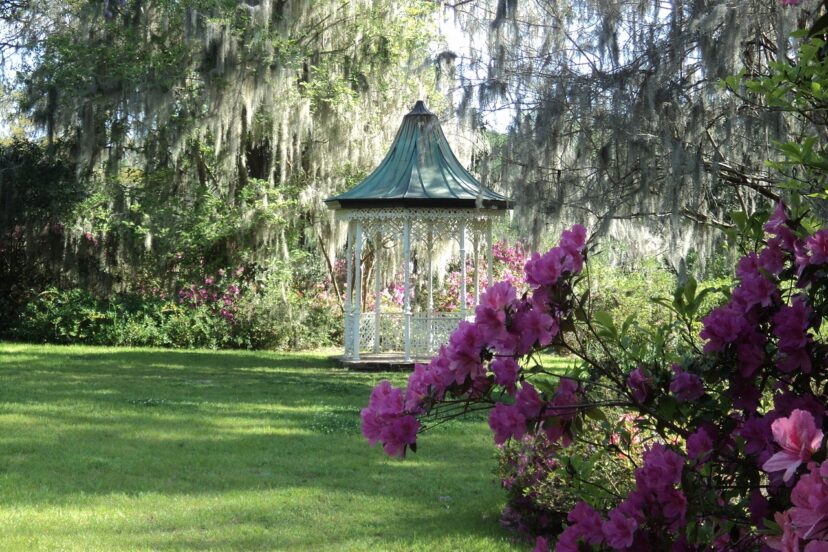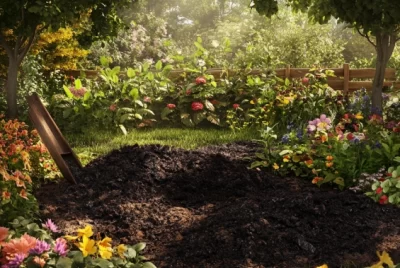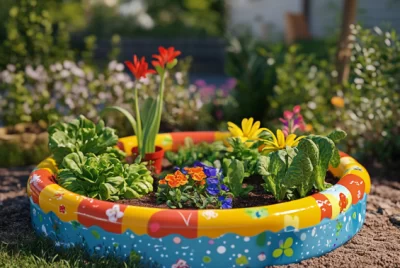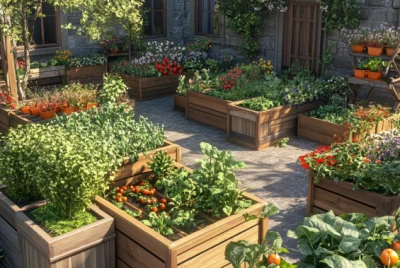Landscape gardening
Introduction
Landscape gardening is a passion of mine. I have spent countless hours immersed in the beauty and tranquility that a well-designed garden can bring. In this article, I would like to share with you the challenges and benefits of landscape gardening, providing helpful suggestions and reasons for my recommendations.
Benefits of Landscape Gardening
Creating a Serene Environment
One of the primary benefits of landscape gardening is the creation of a serene and peaceful environment. A thoughtfully designed garden can be a sanctuary, providing a place to relax, unwind, and reconnect with nature. The sight of lush greenery, colorful blooms, and the soothing sound of water features can have a profound impact on our well-being.
Enhancing Curb Appeal
A well-maintained landscape can significantly enhance the curb appeal of your home. The exterior of a house is the first thing visitors or potential buyers see, and a beautifully landscaped garden can make a lasting impression. It adds aesthetic value, making your property stand out and increasing its overall appeal.
Environmental Benefits
Landscape gardening offers numerous environmental benefits. Plants help in reducing carbon dioxide levels, acting as natural air filters. They also release oxygen, improving the air quality in your surroundings. Additionally, well-planned gardens can help prevent soil erosion and conserve water by capturing rainfall.
Challenges in Landscape Gardening
Selecting the Right Plants
One of the challenges in landscape gardening is choosing the right plants for your garden. Factors such as climate, soil type, and maintenance requirements must be considered. It is essential to select plants that are well-suited to your local conditions to ensure their long-term health and vitality.
Designing the Landscape
Designing a landscape that harmoniously blends various elements can be a daunting task. It involves considering factors such as space utilization, focal points, color schemes, and the overall theme. A well-designed garden requires careful planning and attention to detail to create an aesthetically pleasing and functional space.
Maintaining the Landscape
Maintaining a landscape requires ongoing care and attention. Regular tasks such as watering, pruning, weeding, and fertilizing are essential to keep the garden healthy and vibrant. It is crucial to allocate time and resources for maintenance to ensure that your garden continues to thrive.
Choosing the Right Plants
Selecting the right plants is crucial for a successful landscape garden. Here are some key considerations:
Assessing Climate and Soil Conditions
Before choosing plants, it’s important to assess the climate and soil conditions in your area. Different plants thrive in different environments, so understanding the specific requirements of your garden’s location will help you make informed choices.
Understanding Maintenance Requirements
Consider the maintenance requirements of plants before introducing them to your garden. Some plants require more care and attention than others. If you have limited time for maintenance, opt for low-maintenance plants that are more self-sufficient.
Seeking Native and Adaptive Plants
Native and adaptive plants are well-suited to the local climate and require less maintenance. They have evolved to thrive in the specific conditions of your region and often support local wildlife. Choosing native plants also promotes biodiversity and helps maintain the ecological balance.
Designing the Landscape
Designing a captivating landscape involves careful planning and creativity. Here are some tips for designing your garden:
Establishing Focal Points
Identify focal points within your garden to draw attention and create visual interest. These can be statues, water features, or vibrant flower beds. Focal points serve as anchors and add depth and character to the landscape.
Utilizing Color Schemes
Choose a color scheme that complements your home and creates a cohesive look. Consider the colors of existing structures and incorporate plants with flowers or foliage that harmonize with the overall palette. A well-thought-out color scheme can create a sense of harmony and balance.
Incorporating Pathways and Borders
Pathways and borders provide structure and guide visitors through your garden. Use materials such as gravel, pavers, or decorative stones to create appealing pathways. Well-defined borders around flower beds and lawn areas can add a polished and organized look to your landscape.
Maintaining the Landscape
Proper maintenance is essential to ensure your landscape remains healthy and vibrant. Here are some maintenance tips:
Watering Wisely
Water your plants deeply and less frequently to encourage deep root growth. Mulching around plants can help retain moisture and reduce weed growth. Install an efficient irrigation system to automate the watering process and prevent water wastage.
Pruning and Trimming
Regularly prune and trim plants to maintain their shape, remove dead or diseased branches, and encourage healthy growth. Proper pruning techniques and timing are crucial to avoid damaging the plants.
Weed Control
Weeds compete with desirable plants for nutrients and can hinder their growth. Implement a weed control strategy that may include hand-weeding, mulching, or using appropriate herbicides. Be mindful of the impact on the environment and opt for eco-friendly weed control methods.
Conclusion
Landscape gardening offers numerous benefits and opportunities for creating stunning outdoor spaces. While it comes with its challenges, the rewards of a beautifully designed and well-maintained garden are truly worth it. By carefully selecting plants, designing the landscape thoughtfully, and investing in proper maintenance, you can transform your outdoor space into a personal oasis that brings joy and serenity.
FAQs
1. How much time and effort does landscape gardening require?
Landscape gardening requires varying levels of time and effort, depending on the size and complexity of the garden. However, regular maintenance tasks such as watering, pruning, and weeding are necessary to keep the garden in good condition.
2. Can I incorporate water features in a landscape gardening plan for a small garden?
Yes, you can incorporate water features in a small garden. There are many compact and space-saving options available, such as tabletop fountains or small cascading waterfalls, that can add a tranquil touch to your garden without taking up too much space.
3. Are there any benefits to using native plants in landscape gardening?
Using native plants in landscape gardening offers several benefits. Native plants are adapted to the local environment, requiring less water and maintenance. They also support local wildlife, contribute to biodiversity, and help preserve the ecological balance.
4. How can landscape gardening improve property value?
A well-designed and maintained landscape can significantly enhance the value of a property. It increases curb appeal, making a positive first impression on potential buyers. Additionally, a thoughtfully designed garden can create additional usable outdoor space, further adding value to the property.
5. What steps can I take to create a sustainable garden?
To create a sustainable garden, consider using water-efficient irrigation systems, composting organic waste, using organic fertilizers, and selecting native or adaptive plants. Minimize the use of chemical pesticides and opt for natural pest control methods. Creating a sustainable garden helps conserve resources and reduces the environmental impact.
Remember, landscape gardening is a creative endeavor that allows you to express your personality and connect with nature. Embrace the challenges, enjoy the process, and savor the rewards of a beautiful garden that brings joy and tranquility to your life.




